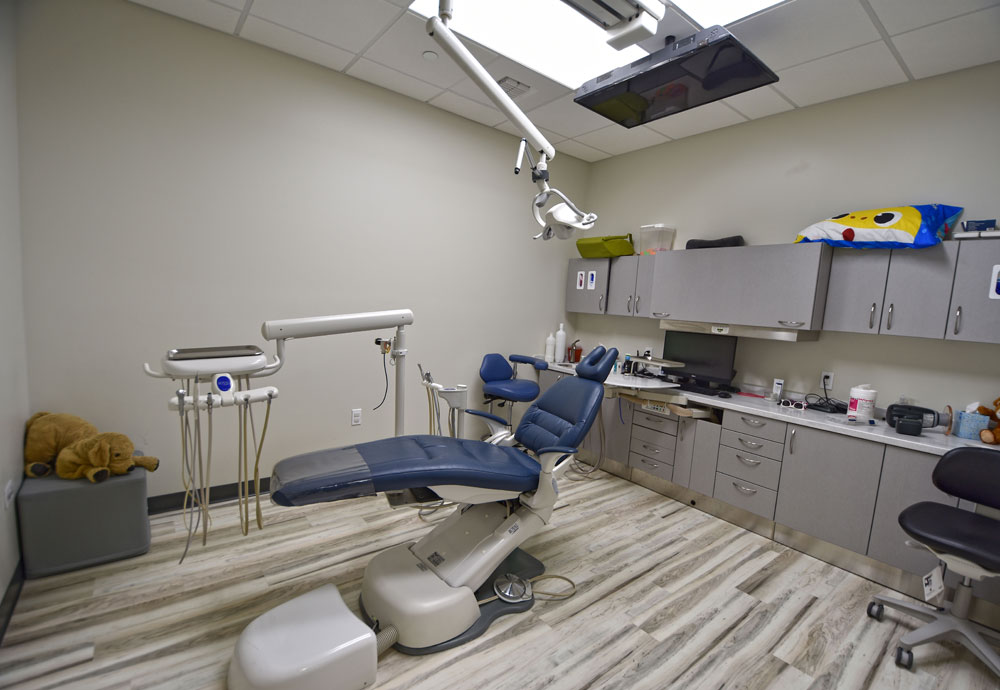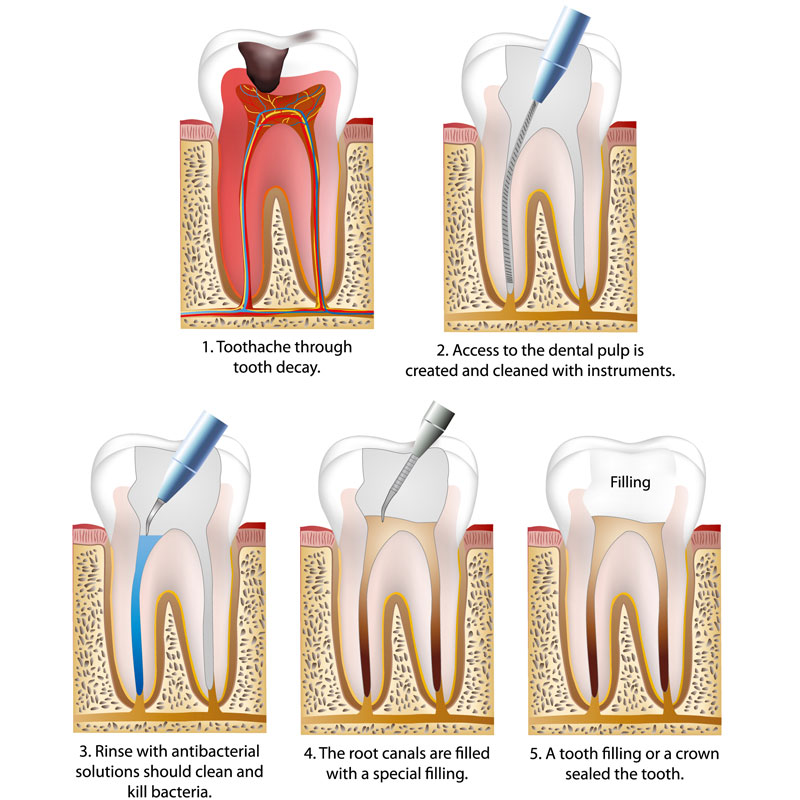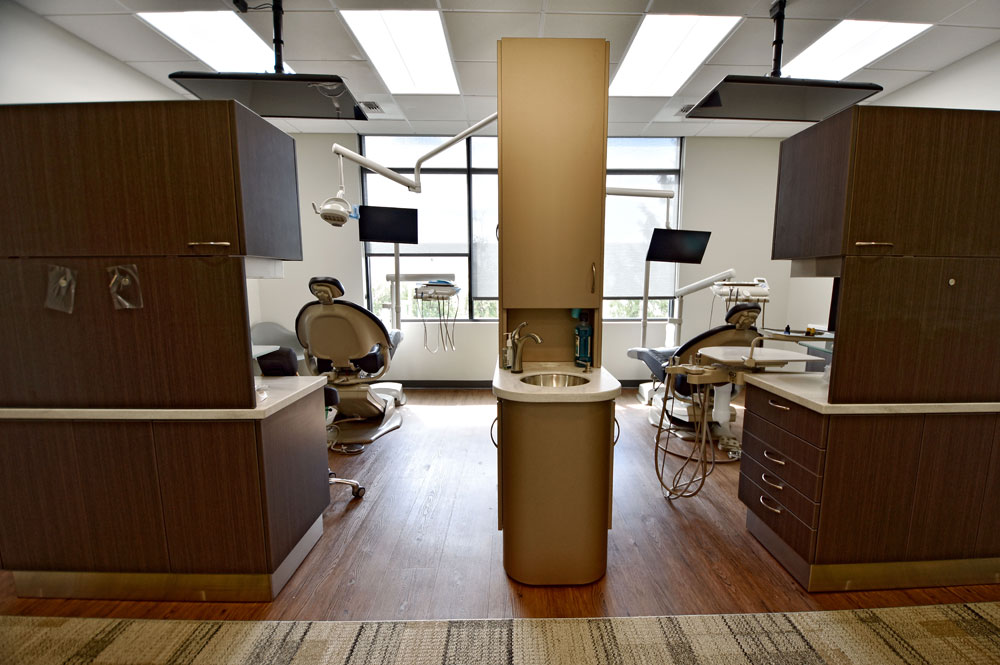Root Canals
Each of the teeth in your mouth feature a hard and protective enamel, which covers a layer of porous dentin, which surrounds the inner-most part, the pulp. The pulp of your teeth is the living part of a tooth that contains nerves and blood vessels. When the pulp of a tooth becomes infected, a root canal, or endodontic treatment, is needed to save the tooth and safeguard your health.

How Does Tooth Pulp Get Infected?

The most common reasons pulp becomes infected are extensive decay (cavities) or a fractured tooth. Chipped teeth and broken teeth can also lead to infection. When the tooth’s structure is compromised, the interior becomes exposed to bacteria-laden saliva, which then causes an infection.
If you experience the following symptoms, you might need a root canal:
- Pain
- Discoloration
- Swelling
- Sensitivity
Our dentist, Dr. Bradley Mott highly recommends immediate treatment of infected tooth pulp. If left untreated, infected pulp can cause:
- Abscesses
- Extreme pain, swelling, and sensitivity
- Damage to the jawbone
- Fever
- Systemic infections
What Happens During a Root Canal?
During a root canal, your tooth and surrounding tissues will be thoroughly numbed, using a local anesthetic. Dr. Mott will drill your tooth, remove the infected pulp, remove the tooth’s compromised roots, and clean the tooth’s interior. The tooth’s remaining root canals and the interior of the tooth are then filled with a special dental composite. This composite fortifies the interior of the tooth, preserving it and protecting it from future infection.
Depending on how damaged the tooth has become, filling might be all that’s required. If the damage is more extensive, the patient might be fitted for a dental crown or cap. Depending on the degree of infection, a root canal might require one, two, or three appointments for the completion of the treatment.


Why Choose a Root Canal Over an Extraction?
Anytime a patient’s natural tooth can be preserved, we recommend saving the tooth over extracting it. Missing teeth not only make it difficult to eat, drink, and speak normally, they can also lead to a person’s physical appearance changing with time. When there are spaces in the mouth, nearby teeth will shift, leading to problems with a person’s bite. Missing teeth lead to the deterioration of the jawbone above and below the vacant space left by the missing tooth. Plus, natural teeth are stronger than replacements, such as implants and bridges.
Stress-Free, Painless Root Canals
At Kenmore Smiles Family Dentistry, the comfort and safety of our patients is our top priority. We provide a variety of sedation dentistry services to ensure root canals and other potentially invasive procedures are pain-free and stress-free. For more information about our Kenmore root canal services or to schedule an appointment with Dr. Mott, we welcome you to contact our office today.










